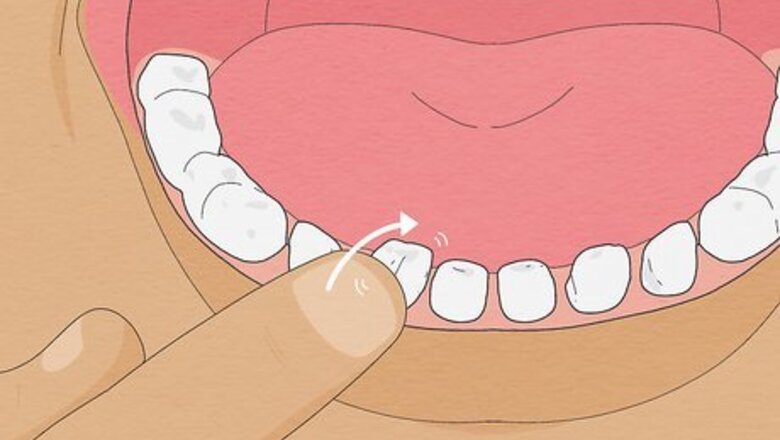
views
How do I test the tooth?
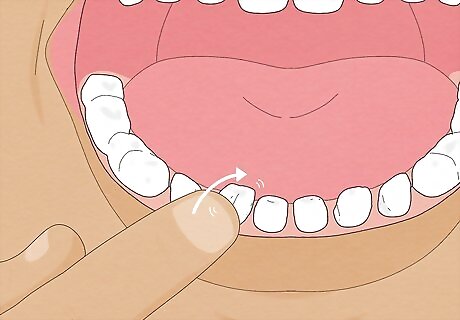
Wiggle the tooth to make sure it moves easily. When you're trying to decide whether the tooth is ready to come out, ask your child to try to wiggle it around. Have them push it back, forward, and side-to-side as far as they can. If the tooth is loose enough to pull, it should move easily, and you shouldn't see any blood. Also, double-check with your child to make sure they don't feel any pain when they wiggle the tooth—if they do, it isn't ready. Your child can use their tongue or their fingers to wiggle the tooth, or you can wiggle it yourself. Just make sure you or your child wash your hands thoroughly if you use your fingers. Pulling out a tooth before it's ready can be painful for your child and it can damage their gums. It might also cause your child's permanent teeth to be crooked when they grow in.
How do you loosen a tooth?
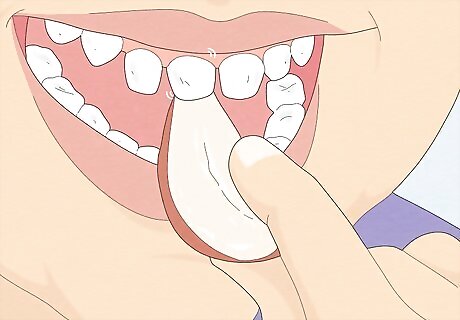
Encourage your child to wiggle the tooth every day if it isn't ready. The easiest way to help a loose tooth along is to have your child wiggle it frequently. At least once a day, remind your child to use their tongue or fingers to wiggle the tooth back and forth and side-to-side. Brushing and flossing can also help the tooth loosen more. Just be gentle, because the gum might be tender in that area. You can also give your child foods that are hard to chew, like apples and cucumbers, to help naturally loosen the tooth. Expert Answer Q I have a canine tooth that is really loose but whenever I try to pull, the back of the tooth stays firmly in place. How can I pull it out? Cristian Macau, DDS Cristian Macau, DDS Doctor of Dental Surgery Dr. Macau is a Doctor of Dental Surgery based in London, England. Dr. Macau is an oral surgeon, periodontist, and aesthetician at Favero Dental Clinic where he is known for his cosmetic dentistry and facial aesthetics work. He is actively involved in scientific research in the field of dentistry and he received his DDS from Carol Davila University of Medicine in 2015. Cristian Macau, DDS EXPERT ADVICE Answer from Cristian Macau, DDS: This means that the gum attachment is stronger in the back, and still needs to be loosened. Wiggle it more in every possible direction, focusing particularly on swinging it from left to right. When it's ready, it will detach.
How do you pull out a loose tooth yourself?
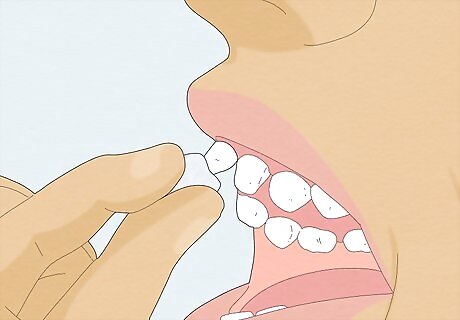
Grip the tooth with a tissue or a piece of gauze. Teeth can be slippery, making them hard to grip—especially super-small baby teeth. To help you hold the tooth firmly, put a folded piece of tissue or gauze over the tooth before you try to grab it. Make sure to wash your hands thoroughly with soap and water before you put your fingers in your child's mouth. You can also wear a pair of rubber gloves to help you get a better grip on the tooth.
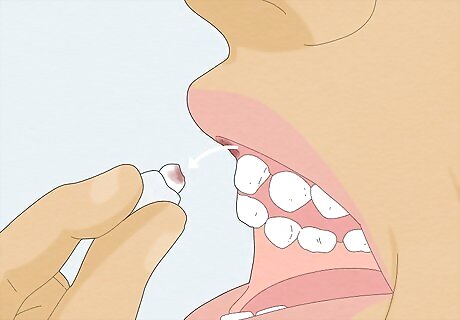
Squeeze the tooth firmly and tug. Using the gauze pad, grasp the tooth and pull up firmly but gently. You can also add a slight twisting motion as you pull. If it's ready, the tooth should come right out. If the tooth doesn't come out easily, it isn't ready yet. Try again in a few days. Work quickly—the faster you pull the tooth, the less it will hurt.
How do you get your child to let you pull their teeth?
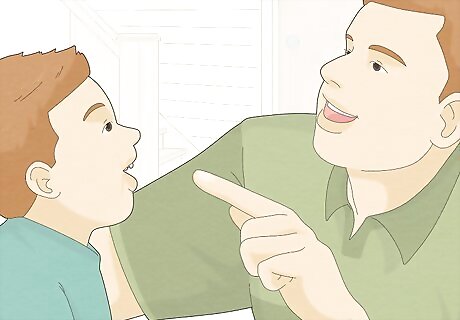
Talk to them about the tooth fairy. If your child needs a little encouragement, try talking to them about what the tooth fairy will bring them in exchange for their tooth. This might help them be excited enough to let you pull their tooth.
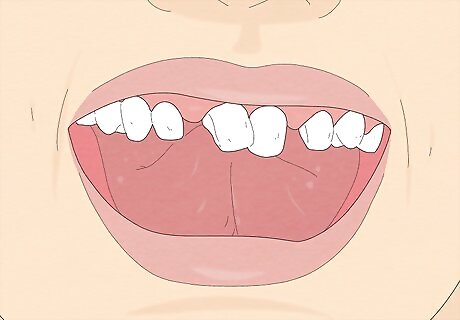
Wait until they're ready. Don't force your child to pull their tooth or let you pull it—the tooth will likely fall out on its own without any help at all. However, if you want to help it along with a little pull, talk to your child first. If they want your help, then you can go ahead. In most cases, your child will be able to remove the tooth on their own just by playing with it.
How do I numb a loose tooth?

Use a numbing cream on the gums. If your child's tooth is loose enough, pulling it shouldn't be painful at all. However, if your child is nervous that it will hurt, you can ease their mind by asking their doctor or dentist to recommend a safe over-the-counter anesthetic. Simply rub a dab of the ointment onto your child's gums and wait a few minutes for it to take effect, then pull the tooth.
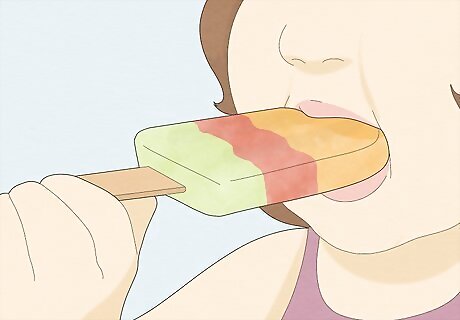
Give your child a cold treat to help numb their mouth. For a quick at-home option, have your child suck on some ice before you pull their tooth. You could also give them a cold treat like a popsicle or a snow cone—this might be just the trick to help put a nervous child at ease. If you use ice cubes, remind your child not to chew on them, as that could damage their teeth.
Can you pull a tooth out with string?
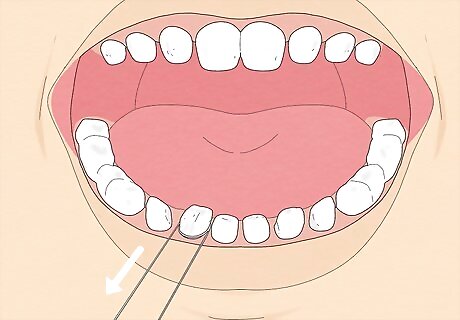
Yes, you can use floss, but only if the tooth is ready to fall out. If the tooth is ready to fall out and you're having trouble getting a grip on it, slide a piece of floss around the tooth right at the gumline. Then, have your child pull forward on the floss with a quick yank. This could help the tooth pop right out. Do not tie the floss to a doorknob. If the tooth isn't ready, this approach can cause your child a lot of pain and bleeding.
What do I do after the tooth falls out?

Stop the bleeding with a sterile piece of gauze. Even if the tooth was very loose, there will likely still be some bleeding. Take a fresh, sterile piece of gauze and press down on the tooth socket. Have the child bite on the gauze piece for 15 minutes or so. This will help to control the bleeding and help the wound heal faster. If the bleeding doesn't stop after 15 minutes, call your child's dentist.
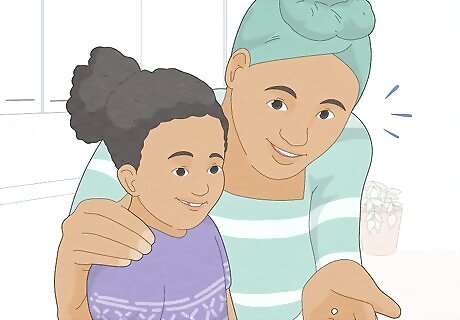
Remind your child this is a big milestone. Whether this is your child's first lost tooth or they've been through this a few times already, take a minute to congratulate them! If they're feeling a little overwhelmed by losing their tooth, they'll appreciate the positive attention.
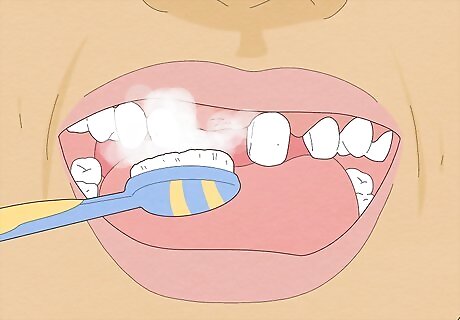
Keep brushing and flossing as normal. Your child's gum might be a little tender where they lost their tooth. However, they'll still need to brush and floss the rest of their teeth the way they usually would. Just remind them to be gentle when they brush in the area where their tooth fell out.
What if the bleeding doesn't stop after the tooth comes out?
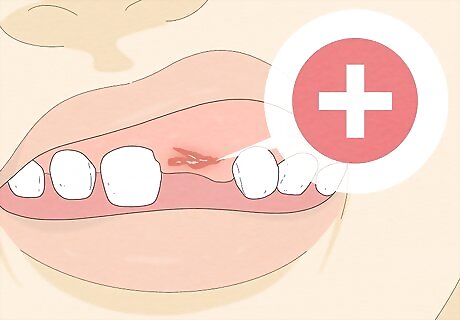
Get emergency treatment if the socket bleeds longer than 15 minutes. It’s totally normal for the socket to bleed a little after you pull the tooth, so try not to worry. However, the bleeding should stop after about 15 minutes, especially if you're pressing gauze into the socket. If the socket is still bleeding after 15 minutes or so, go to the doctor, an urgent care center, or the emergency room so a doctor can stop the bleeding. This likely means that there is a slight tear in the gum—the dentist will likely treat it much the same way they would treat a patient after a tooth extraction. However, they may also check to make sure there isn't something else going on, like a bit of tooth fragment left behind in the socket.
What do I do if the tooth breaks when it comes out?
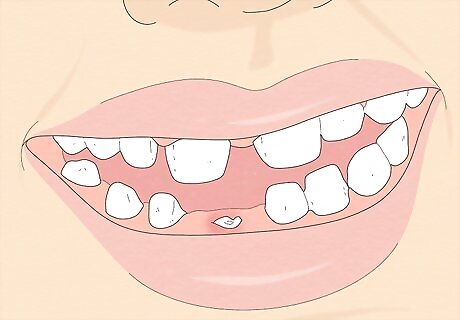
Go to the dentist immediately if there are any tooth fragments. You likely won’t need to worry about this, but if you think your child's tooth broke off when it fell out, you should see a dentist right away. The fragments could cause pain or lead to an infection, the dentist will need to remove them. Fragments usually occur if a tooth falls out after an injury, rather than when you pull a loose tooth. However, if you pull the tooth before it's ready, sometimes the roots can remain. If your child has pain or swelling in the days after the tooth was removed, a piece of the root may have broken off.
What do I do if my child has shark teeth?
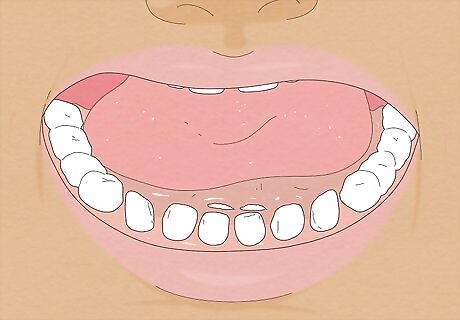
Don't do anything until the permanent tooth grows in fully. If your child's permanent teeth start coming in but the baby teeth haven't fallen out yet, you might notice that the double row of teeth looks like a shark's teeth. However, there's nothing to worry about. In most cases, the baby tooth is going to fall out on its own before the permanent tooth comes in all the way. If the permanent tooth is completely out and the baby tooth isn't loose yet, you'll probably need to take your child to the dentist for an extraction.
When should I go to the dentist for a loose tooth?
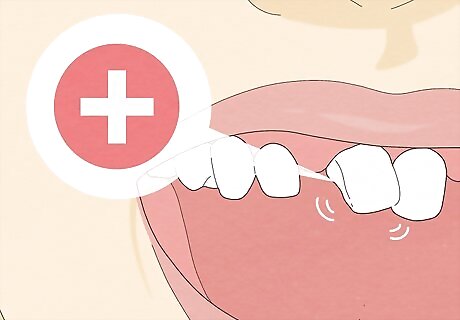
See your doctor if the tooth isn't loosening on its own. If you notice that your child's tooth is a little wiggly, but months pass and it hasn't really changed much, it's a good idea to set up an appointment. The dentist will be able to check whether their permanent teeth are developing properly and whether any extra help might be needed. You'll also need to see the dentist if the permanent teeth have completely erupted but the baby teeth haven't started to loosen yet.
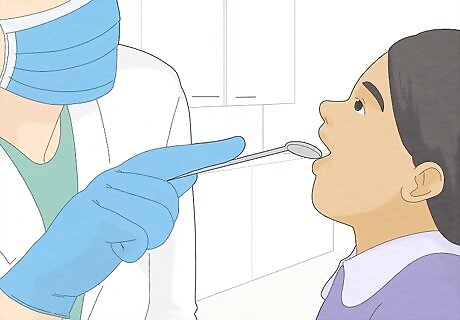
Visit the dentist if the tooth is loose because of an injury. If your child got hit or fell and hurt their mouth and now they have a loose tooth, make an appointment with the dentist as soon as possible. The dentist will examine your child’s mouth to figure out if the tooth is loose because of the injury or because it’s time for the tooth to fall out. Then, they’ll help you decide how to treat the loose tooth.
What do I do if my permanent tooth is loose?
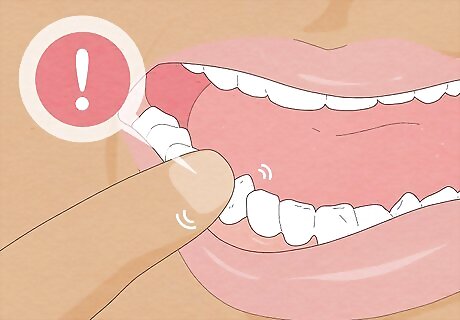
See your dentist but try not to worry. If you have an injury that causes your tooth to become loose, make a dental appointment. However, these types of injuries usually heal up on their own, so it's probably nothing to panic about.



















Comments
0 comment